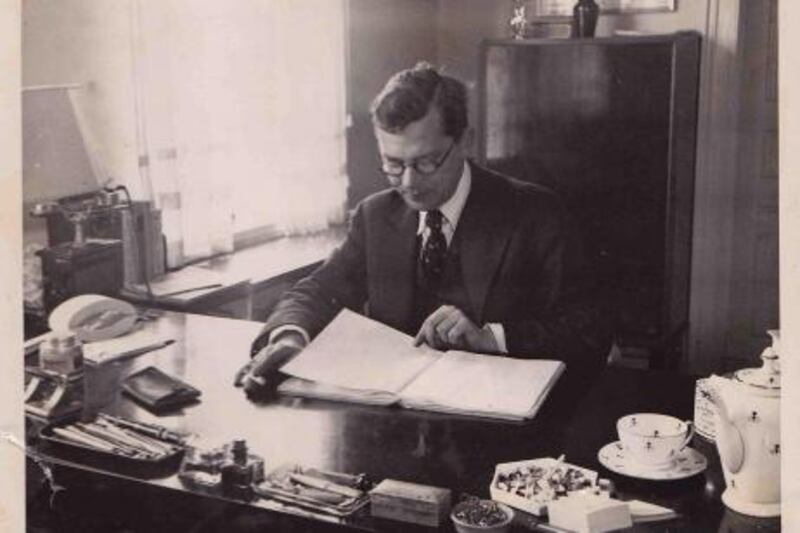In January of 2009, Sam Munson, writing in The National, praised a book newly translated from German. He suggested that it should be seen as one of "the best novels of political witness." But though Hans Fallada's thriller, Alone in Berlin, was certainly deserving of wider attention, the odds were stacked against it - and not just because, Stieg Larsson aside, translated fiction rarely disturbs the best-seller lists in the US and the UK. It didn't help, either, that Fallada died two weeks before Alone in Berlin was first published ... in 1947.
And yet, quite remarkably, this tale of a couple in Nazi Germany and their efforts to resist the Fuhrer is now outselling classics by Jane Austen, Charles Dickens and George Orwell in the UK. In the US, where it was published under the title Every Man Dies Alone, sales are now past 200,000 - a remarkable figure for translated foreign literature. Translated into 20 languages since, Alone in Berlin has become a worldwide publishing sensation.
With the benefit of hindsight, it is not all that difficult to understand why. In 2011, more than 70 years after it was set, Alone in Berlin rests easily in the popular historical fiction genre - a shocking account of living in fear under dictatorship, and a vivid portrayal of life in wartime Germany. It has the feeling of a memoir, too; the ordinary Berlin couple who start to protest against the Nazis after their son is killed in action are based on a real husband and wife who distributed anonymous postcards across the city detailing their discontent with the regime. And, finally, as the Gestapo closes in on them, it becomes a page-turning thriller, until its devastating climax. Ticking so many boxes, it is no surprise that it swiftly became a book club favourite.
Alone in Berlin has also taken on a life of its own. Last week saw another two remarkable news stories surrounding the book. On Wednesday, it was announced that the original manuscript, recently uncovered, actually has an extra chapter which rather changes the tone. In the best-selling, published edition, it is not a huge surprise when the couple embark on the resistance that will change the course of their lives, but in Fallada's original text, the wife actively supports the Nazi regime - even volunteering to be in the National Socialist Women's League. As Fallada researcher Manfred Kuhnke told the Guardian: "These are substantial changes. Fallada didn't want flawless anti-fascists. He would never have taken this chapter out."
To that end, the book will be reprinted in Germany with the original chapter in place, while Penguin is also said to be considering a translation for inclusion into future editions. It's an important development, too, because it adds to the sense that Fallada was writing a book of immense moral complexity and texture. In dying before it was published, he may not even have known that the chapter had been removed.
However, he certainly knew he had a good book on his hands - he told his family that he had written a "great novel" just before his death at 53. Which makes it all the more remarkable that, last week, it was also revealed that a British publisher turned the book down just a year after it was written - even though it had already published other work by the author.
A letter from the publisher, found at the National Library in Jerusalem, contains the following: "I have the distinct impression that our poor author, after all his tribulations, had lost his inspiration. This is not to be wondered at, and it might have come back if he had only lived. Now we must regard this as one more of the countless war tragedies."
The real tragedy was that Alone in Berlin remained forgotten for so many decades. That it did was probably due to a multitude of factors. In a Britain recovering from war, the notion of reading about a "good German" would have been unpalatable - but even in Fallada's home country, Alone in Berlin would have spoken some uncomfortable truths about the state of Germany in the Second World War. Fallada was also assumed to be a communist because he ended his days in East Germany - which again would have made him persona non grata in the West.
But all that has changed now. The film rights have been purchased by Vincent Perez and Good Bye, Lenin!'s Stefan Arndt - which will ensure this story will run and run. And as the publisher of Penguin Classics, Adam Freudenheim, remarked to the The Observer last week: "It is a book that you can't help but talk about and remember. It asks, 'What would you have done if you'd been there?'"
- Alone in Berlin (Penguin) is out now.






